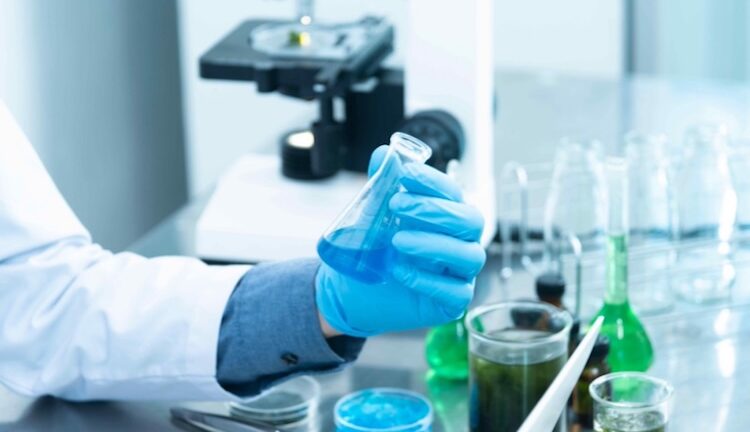By Gilles-Eric Séralini and Gérald Jungers*
PARIS | 26 November 2025 (IDN) — Since the Second World War, we have been increasingly contaminated by chemicals that enter our bodies through dust, which is stable down to the infinitesimally small. Acting like long-term spam, these substances generate chronic diseases, cancers, and nervous system degeneration, among other ailments, from which virtually every family now suffers.
The same is true for biodiversity, burdened with petroleum-derived residues, the source of pesticides and plasticisers. Nanoplastics are currently authorised in pesticides.
Spraying pesticides also disrupts the climate, as the IPCC has highlighted. Plastic derivatives can be found on beaches worldwide, in the oceans, and throughout the biosphere. “We are the children of oil,” anthropologists of tomorrow will say, if they manage to exist.
Scientists warn
We raised the alarm about this in November 2025, with 43 scientists from 5 continents, leading international experts in pesticide and pollutant toxicology, as well as environmental and health sciences. And we propose solutions. Our work has just been published in a high-impact scientific journal, Environmental Sciences Europe: https://rdcu.be/eOj3c.
The article exposes the fraud and misconduct inherent in current regulatory assessments of toxic substances, including pesticides. For example, we discovered that pesticides are never tested in their commercial form, but only according to a few components declared by industry, an approach endorsed by health agencies. The declared ingredients are not always the most active in the marketed mixtures.
This is the case for the substance known as “glyphosate,” one of the components of the world’s leading pesticide, belonging to the Roundup family. For several years, we have published that glyphosate never exists alone: it is always mixed with toxic substances such as arsenic and other heavy metals, as well as undeclared carcinogenic petroleum residues that also have pesticidal properties.
The same is true for other pesticides. This fraudulently multiplies the toxicity of industry-declared substances several thousand-fold. We have denounced this for years before national and international health agencies, and legal proceedings are ongoing. Several associations and a coalition of European NGOs (PAN Europe and Secrets Toxiques) have drawn on our work to win a case before the Court of Justice of the European Union, which ruled that pesticides must be assessed in their entirety, not only on a few declared components, as regulatory agencies have done since their creation. A revolution in toxicological assessment is therefore imperative.
We must break decisively with this system of compromises. Similar misconduct already sent responsible parties to prison in the United States in the 1980s. Yet, the products at the centre of these scandals remain in the environment and on the market: PFAS, bisphenols, and PCBs developed by Monsanto, now Bayer.
Failures of the economic system
Unfortunately, international trade agreements are not affected by court rulings, including those against Monsanto-Bayer (formerly Mobay during the Second World War). This is illustrated by recent settlements exceeding $ 10 billion for false declarations in cases brought by cancer patients harmed by Roundup.
Even so, these legal outcomes still do not trigger the regulatory reforms that would have prevented the worldwide spread of pollutants primarily responsible for the harms we highlight.
The well-known failures of the economic system generate poor plant, animal, and human health by promoting an intensive agricultural model that deliberately underestimates the toxicity of pesticides and plasticisers, producing harmful food on a global scale. All of this is effectively subsidised through the privatisation of public money: the largest budgets are channelled into intensive agriculture under a growth-driven model that, while claiming to support farmers, in reality fuels massive pesticide use and ultimately enriches the major chemical companies.
We propose straightforward solutions: reducing regulatory toxicity thresholds for existing pollutants by at least a factor of one hundred and requiring complete long-term assessments of any new product before it reaches the market, rather than testing only a handful of selected components, as industry and agencies currently do.
Equally essential is complete transparency of agency and industry data; the confidentiality that now surrounds these practices only enables misconduct.
Furthermore, the development of agroecological practices is more than indispensable for the biosphere, our food systems, and our future. It has been shown that the world can be fed with a diet less reliant on meat, avoiding the model of animal concentration camps.
Today, global agriculture serves more to feed pigs, chickens, and cows in wealthy countries than to nourish hungry children, unlike what some champions of the Green Revolution claimed. Sadly, this has come at the expense of forests and through the overexploitation of arable land. It also contributes to the accelerated degradation of the ocean through overfishing.
We have the means to save the world, but far too many political weaknesses prevent the necessary decisions from being taken today.
*Gilles-Eric Séralini is a professor of toxicology and molecular biology at the University of Caen Normandy. Together with Gérald Jungers, an affiliated researcher, they are members of the Risks, Quality and Sustainable Environment Cluster at the MRSH. (IDN-InDepthNews)
Image credit: Chokniti Khongchum

